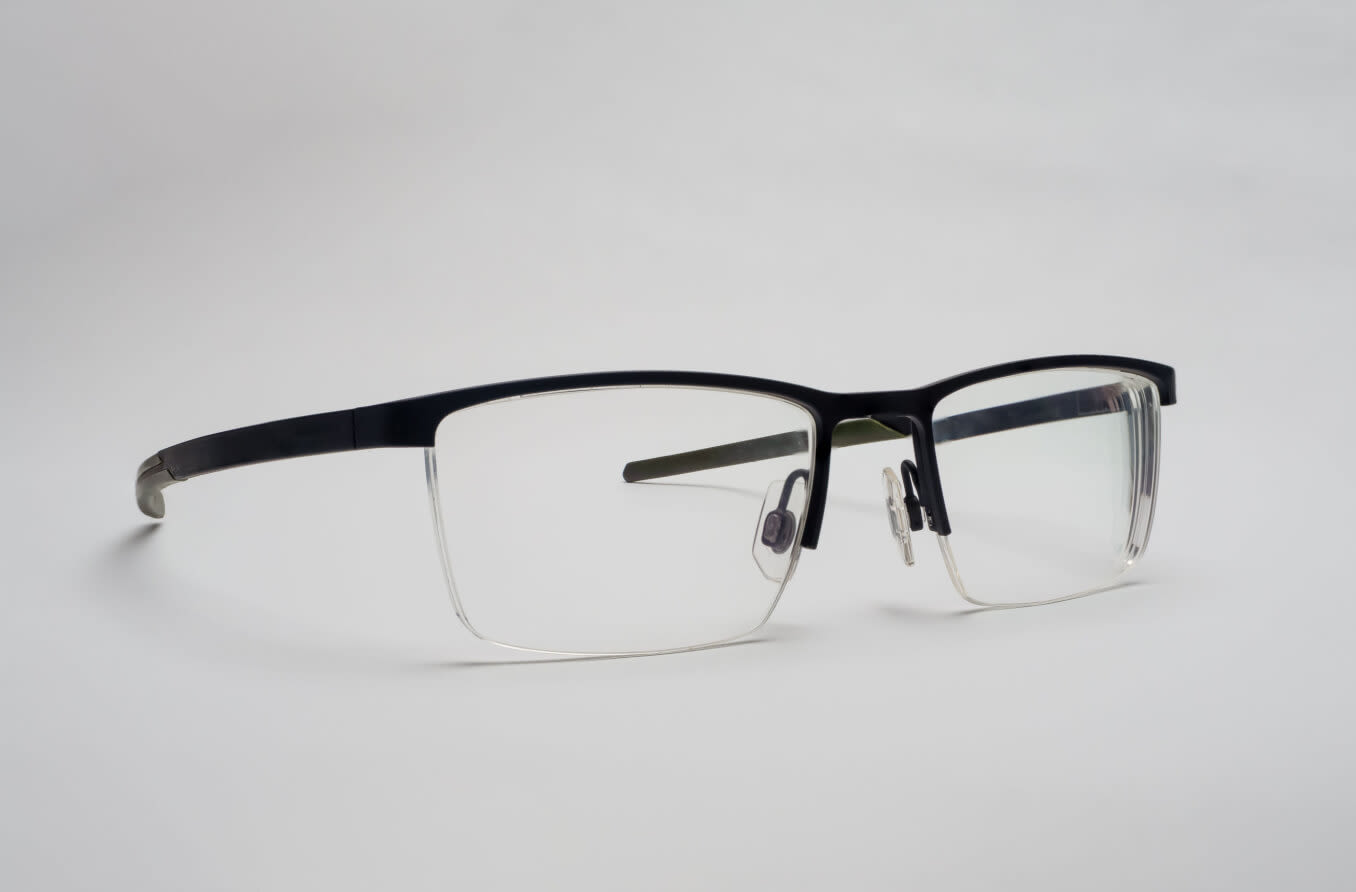What's the difference between polycarbonate and high-index lenses?

Polycarbonate vs. high-index lenses
What’s the right choice when it comes to the lens material for your next pair of glasses? When considering high-index lenses vs. polycarbonate lenses, it depends on your prescription, lifestyle and other various factors.
Polycarbonate eyeglass lenses are thin, lightweight and very impact resistant. They also offer superior durability. However, they are not particularly scratch-resistant, so you’ll need to add an anti-scratch coating when you order your glasses.
High-index eyeglass lenses are most helpful for people with high-power eyeglass prescriptions. They offer a dramatically thinner lens than traditional glass and plastic lens materials, which makes them more cosmetically pleasing.
Read on for more details about these lens materials, as well as some advantages and disadvantages to keep in mind when picking out your next pair of specs.
Overview of polycarbonate lenses
Polycarbonate lenses are made of a thin, lightweight type of plastic. The material is up to 30% thinner than ordinary glass and plastic lenses, and is also much more durable.
Because of their high impact resistance, polycarbonate lenses are often recommended for children and people who play sports or participate in strenuous activity. But despite their overall durability, they are not naturally scratch-resistant and require a scratch-resistant coating.
Polycarbonate lenses have a natural ultraviolet (UV) filter, so you don’t have to add a special coating to keep your eyes safe from the sun’s harmful UV rays.
Polycarbonate lens pros and cons
One of the biggest advantages of polycarbonate lenses is their impact resistance. But there are other pros and cons to keep in mind, including:
Pros
Thinner and lighter than regular, lower-index plastic and glass lenses
Impact-resistant
May help prevent eye injury for kids and athletes who wear them
Built-in ultraviolet protection
Cons
Scratch easily without an additional scratch-resistant coating
Some special coatings may cost more
Color distortion can occur on lenses with a higher prescription
Strong prescriptions result in a thicker lens than with high-index lenses
SEE RELATED: Plastic vs. polycarbonate lenses: Advantages & disadvantages
Overview of high-index lenses
High-index lenses are thin, lightweight lenses made from a special type of plastic. To be considered high-index, a lens must have a refractive index of at least 1.60. The higher the refractive index, the thinner the lens and the more effectively it bends light.
High-index lenses are ideal for those who have a strong prescription, because they offer clarity without the inconvenience of a thick “Coke bottle lens.”
The size and shape of your eyeglass frame can also affect the thickness of your lenses, so it’s important to talk to your eye care professional about what lenses and frames will work best for your vision needs.
High-index lens pros and cons
If you have a strong vision prescription for myopia (nearsightedness), hyperopia (farsightedness), and/or astigmatism, high-index lenses are a good option. Here are some other factors you should consider:
Pros
Thinner and more lightweight than other materials
More cosmetically pleasing for stronger prescriptions
May be more scratch-resistant than polycarbonate lenses, depending on the material
Cons
More expensive than other lens types
Less impact-resistant than polycarbonate lenses
Additional coatings may be required for UV protection and other lens features
Which lens is right for you?
There’s a lot to consider when you’re picking out a new pair of lenses. You may be curious about the strength of the material, protection against ultraviolet rays and the overall clarity you can expect. And each of these concerns are important when it comes to your eye care.
When in doubt, don’t hesitate to consult an eye care professional about your choices in lens materials. Your eye doctor can help you determine the best fit for you based on your vision needs.
READ NEXT: How to choose the best lenses for your glasses
Lens material properties. EyeWiki. American Academy of Ophthalmology. August 2023.
Eyeglasses: How to choose glasses for vision correction. EyeSmart. American Academy of Ophthalmology. June 2023.
Spectacle lens materials and their special coatings at a glance. Acta Scientific Ophthalmology. April 2021.
Page published on Thursday, December 7, 2023
Page updated on Tuesday, December 12, 2023
Medically reviewed on Tuesday, December 5, 2023






